The following information appeared in the Statesman Journal Newspaper, Sunday November 24, 2013. It is reproduced here with citations for reference purposes.
This past month the museum received a phone call from a gentleman who had located a piano with the phrase “Manufactured for Geo. C. Will, Salem, Oregon” embossed into the piano’s harp. Research into this piano offered glimpses into the interesting life of George C. Will, a piano and sewing machine merchant.
Will was born in Bethel, Missouri in 1859, the same year Oregon became a state.
By the time he was 21, it appears Will had struck out on his own. The 1880 census shows him living alone and farming.[5] This part of his life is not too well documented. Census records indicate that he attended college.[6] By the time he was 27, Will had met, wooed and married a 17-year-old woman named Margaret Ann.[7] Despite the difference in their ages, the pair seemed well matched. Both were from German immigrant families, were protestant and stood about 5’ tall.[8]
By 1893, the couple and their young son had moved to Salem where Will worked as a piano and sewing machine salesman. He shared business space with fellow piano salesman C.C. Sarvis at 203½ Commercial St in downtown Salem.[9] During the 1900s, Will expanded his business and it appears to have been quite prosperous. The 1900 census shows his family employing a servant and the 1902 Oregon Statesman Illustrated Annual gives this glowing review of the store’s success by describing it as carrying “the most complete line in everything pertaining to music as well as sewing machines, from the smallest parts to the largest and costliest in each line. By strictly attending to these two lines and making them a study for twenty-four years; having the choice of all the finest and most satisfactory lines; faithfully and immediately attending to any accidental repairs of all goods sold, free of charge, consequently always recommending the best possible goods a customer can afford; personally attending to all collections, not placing accounts and notes in brokers’ or bankers’ hands for collection; not figuring to make all on a single sale, but building on the larger and grander future; –adhering to the above principles, he has built from a very small business one of the most substantial businesses on the Pacific Coast, drawing trade from all over the state as well as from adjoining states.”[10]
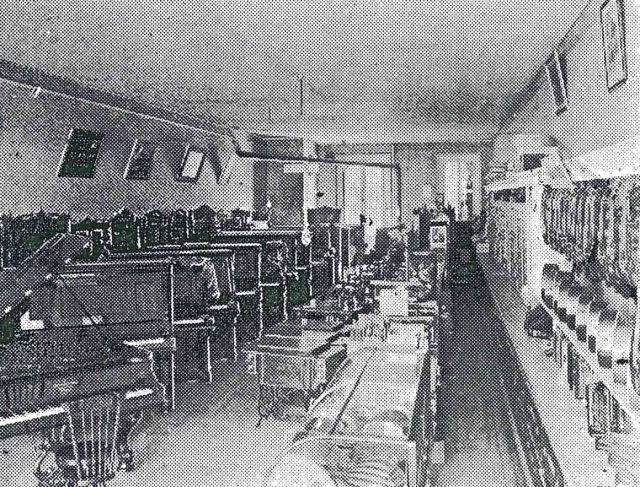
Interior of the George C. Will Piano and Sewing Machine Store as it looked in 1902 most likely at 231 Commercial Street location. Photo Source: Oregon Statesman Illustrated Annual.
By 1910 the Wills had moved into a home at 1195 Commercial Street N, where they would live in until George’s death in 1944.[11] The house, which no longer exists, stood at the corner of Market and Commercial Streets. The Will’s store, after about 1910, was located at 432 State Street, perhaps somewhat ironically in the same block and same side of the street as the Willamette Music Company today. The store stood just about where the exit to the drive through for Key Bank currently stands.
The thing that most struck me by the Will’s story was their partnership and long lasting devotion to their business. As early as 1900, when most women were described as “At Home” or “Keeping House” in the census, Margaret Will was listed as “Sales Assistant.” The Wills were devoted to the store. By 1940, George was 81 and Margaret was 71, and they were still putting in 56 hour work weeks.[12]
As we found out in researching, somewhat confusingly, the next generation of music store in downtown Salem was called the Wills Music Store. The store was founded by the Wiscarson family and Saul S. Janz. They first appear in directories in 1949 operating out of the same building as George and Margaret Will’s Shop, perhaps giving a clue to the source of the similar sounding name.[13]
As luck would have it, I came across a great biography of Will in the Oregon Magazine, December 1940 edition. It reads:
George C. Will
Salem’s Candidate for oldest merchant in the Northwest for continuous years of active business management. He has been in business in Salem for the past 53 years. Bron in Bethel, Mo., 1859, and came to Aurora, Oregon in 1863. when asked how many pianos he had sold during his 63 years in the music business in Oregon, he replied, “I don’t know how many pianos but I might tell you how many carloads of pianos I have sold.”
[1] 1895 Marion County Census; US Federal Census for 1860, 1870, 1880.
[2] Government Land Office Records. US Bureau of Land Management. Accession No OROCAA 040626. Accessible online: http://www.glorecords.blm.gov/details/patent/default.aspx?accession=OROCAA%20040626&docClass=SER&sid=2ujd5y50.14m
[3] “Will Family” Aurora Colony Museum Website. See pictures of the John and Christina Will, George’s parents. http://www.auroracolony.org/old/families/will_family/
[4] Kopp, Jim. “Aurora.” Oregon Encyclopedia Project. https://oregonencyclopedia.org/articles/aurora/#.XKuYLJhKiUk;
[5] 1880 US Federal Census. Clackamas County.
[6] 1940 US Federal Census.
[7] 1930 US Federal Census.
[8] 1895 Marion County Census.
[9] 1893 City Directory, Salem. WHC Collections. Pp 127.
[10] Oregon Statesman Illustrated Annual, 1902. WHC Collections Pg 44.
[11] 1910 US Federal Census, 1920 US Federal Census, 1930 US Federal Census, 1940 US Federal Census, Oregon Death Index.
[12] 1940 US Federal Census.
[13] 1949 Salem City Directory.




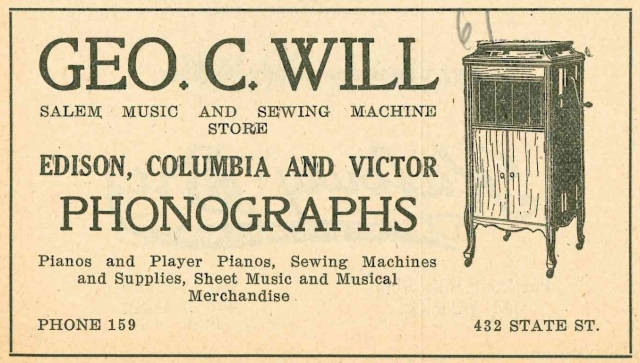
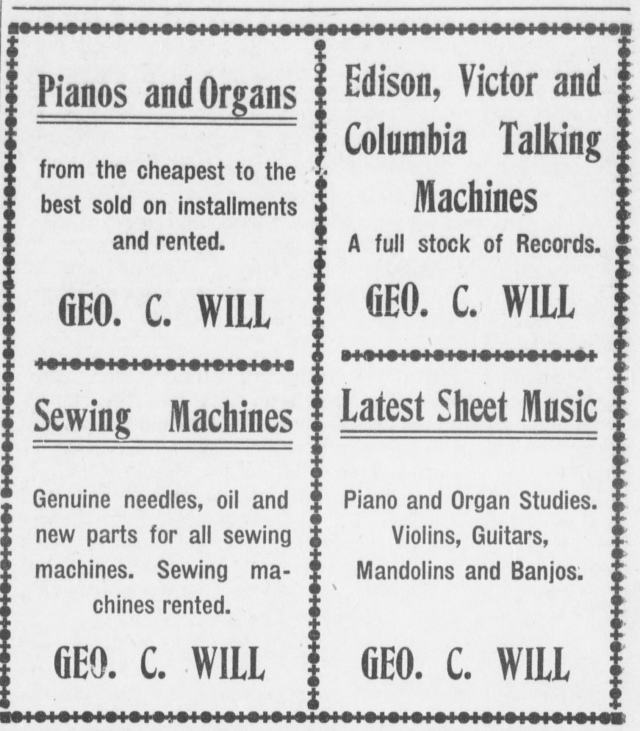
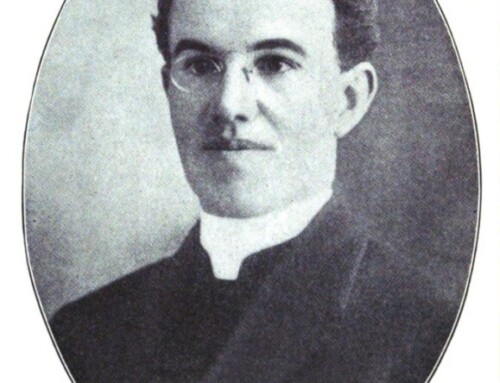
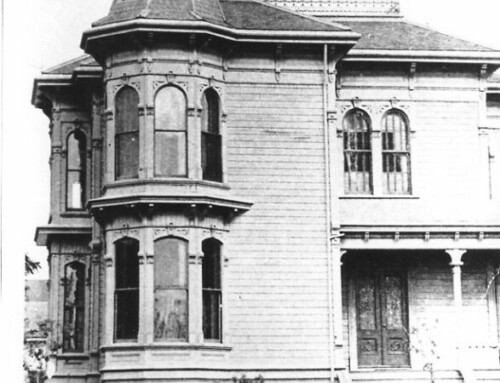
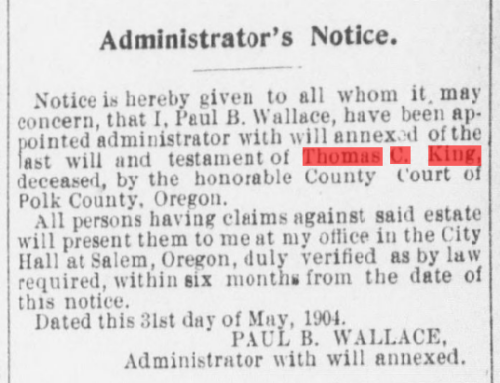
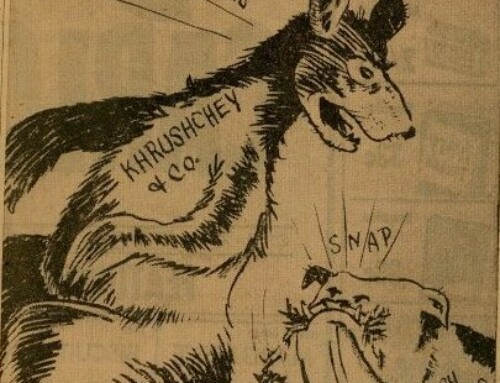
Leave A Comment